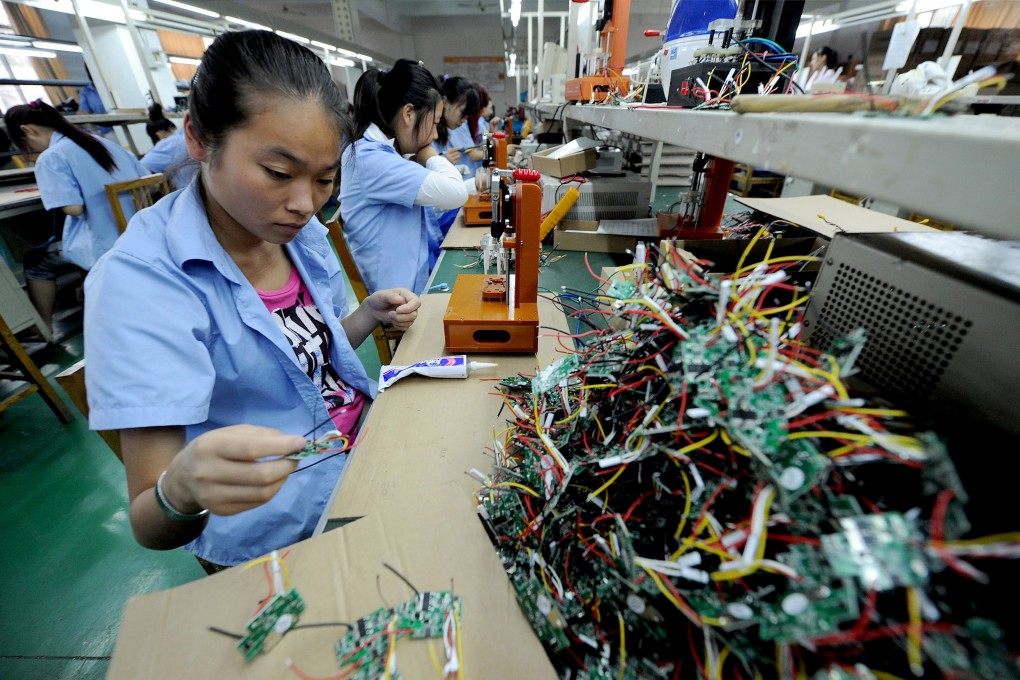China plays down foreign capital flight fears amid manufacturing slowdown
Foreign direct investment climbed 2.2 per cent in March, Commerce Ministry says, but admits that manufacturing has fallen out of favour

China’s Ministry of Commerce has played down concerns about the flight of foreign capital, citing a rise in direct investment from abroad, although it said the mainland’s manufacturing sector has continued to lose appeal.
The judgment came after a third consecutive quarterly decline in China’s foreign-exchange reserves fuelled speculation that foreign capital was fleeing the country amid an economic downturn.
Foreign direct investment (FDI) climbed 2.2 per cent in March from a year earlier to US$12.4 billion, the ministry said on Thursday. First-quarter FDI gained 11.3 per cent.
The number of foreign companies that ended business in China declined 17.6 per cent in the first quarter, while those that withdrew some of their capital fell 35.7 per cent, ministry spokesman Shen Danyang said at a briefing, without telling the value of investment affected.
“Some foreign companies come and some leave. But generally those come out-numbered those leave,” Shen said. “There’s not so-called ‘foreign capital withdrawal waves”.
Monthly FDI figures tend to be volatile when affected by big one-off deals.
However, some economists suspected capital outflows were continuing, citing the US$113 billion drop in foreign-exchange reserves in the first quarter, the largest quarterly fall on record, even taking account of currency value fluctuations. They said the capital flows have been affected by factors including China’s cooling economic growth, property market downturn and a stronger US dollar.